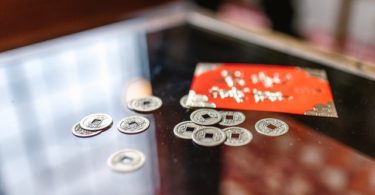The $900 billion economic relief package that emerged from Congress over the weekend will deliver vital aid to millions of households and businesses that have struggled for months to survive. Yet with the economy still in the grip of a pandemic that has increasingly tightened curbs on business activity, more federal help will likely be needed soon.
And it’s unclear whether or when the government might provide it.
For now, the package that congressional leaders agreed to Sunday will provide urgently needed benefits to the unemployed, loans to help small businesses stay open and up to $600 in cash payments to most individuals. It will also help families facing evictions remain in their homes. The measure includes no budgetary help, though, for states and localities that are being forced to turn to layoffs and service cuts as their tax revenue dries up — a potential long-run drag on the economy.
Months from now, economists say, the widespread distribution and use of vaccines could potentially unleash a robust economic rebound as the virus is quashed, businesses reopen, hiring picks up and consumers spend freely again. Until then, the limited aid Congress has agreed to won’t likely be sufficient to stave off hardships for many households and small companies, especially if lawmakers balk at enacting further aid early next year. And a widening financial gap between the affluent and disadvantaged households will likely worsen.
“Some aid is better than no aid,” said Gregory Daco, chief U.S. economist at Oxford Economics. “It’s positive. But it’s likely going to be insufficient to bridge the gap from today until late spring or early summer, when the health situation fully improves.”
President-elect Joe Biden has said he will seek another relief package soon after his inauguration next month, setting up another political brawl, given that some Senate Republicans have said that with vaccines on the way, they think further government aid may be unnecessary.
The new rescue support offers less aid than Democrats had pushed for and much less than was provided in a multi-trillion dollar package for households and businesses that the government enacted in March. A new supplemental federal jobless benefit, for example, was set at $300 a week — half the amount provided in March — and will expire in 11 weeks. An extension of a benefits program for jobless people who have exhausted their regular state benefits and for self-employed and gig workers will also be extended until mid-March, well before the economy is likely to have fully recovered.
“It’s not as if in March there’s suddenly going to be a light switch that’s turned on and we’re back in pre-COVID mode,” Daco said.
Still, the new aid package may be enough, for now, to prevent another recession. S&P Global estimates that the money should help boost the U.S. economy back to its pre-pandemic level by the July-September quarter of next year — seven months or so from now. Without any support, that level wouldn’t have been reached until 2022, S&P estimates.
The economy has been enduring a renewed slump as the resurgent virus has intensified pressure on businesses and consumers have stopped shopping, traveling, dining out and attending sports and entertainment events. Key measures of the economy — retail sales, applications for jobless aid, travel spending — have steadily weakened.
More than 9 million Americans had faced a total cutoff of their unemployment benefits if Congress hadn’t agreed to the new package after months of stalemate. More than 4 million have already used all the unemployment aid available to them, which lasts 26 weeks in most states; they will be able to reapply.
They include Warren Calvert, who ran out of unemployment benefits about two months ago, and is several months behind on his electric bill. In the spring, Calvert lost what he considered the best job he ever had: A $15-an-hour concession cook at the Fiserv Forum arena in Milwaukee, where the NBA’s Bucks play.
Now, Calvert and his girlfriend, who also lost a serving job at Fiserv, are trying to manage by selling homemade eggrolls around their neighborhood. To try to stay on top of his rent, he sells the eggrolls — original fusion concoctions like chili or cheese steak — at all hours of the day and night. With little money left over for other food, they mostly eat egg rolls themselves.
“It’s really still hard — I’m still struggling day by day,” Calvert, 38, said. “Ain’t nobody feeling Christmas-y right now. Who’s buying presents? I’m going to put up some lights, and that’s it.”
Calvert said he will apply for the new unemployment benefits while he continues searching for work. But he fears it won’t be enough to prevent him from losing his apartment.
“I’m really worried,” he said. “I’m still going to be short. I feel like Congress is playing with our lives.”
Full story on MarketBeat.com




Leave a Comment